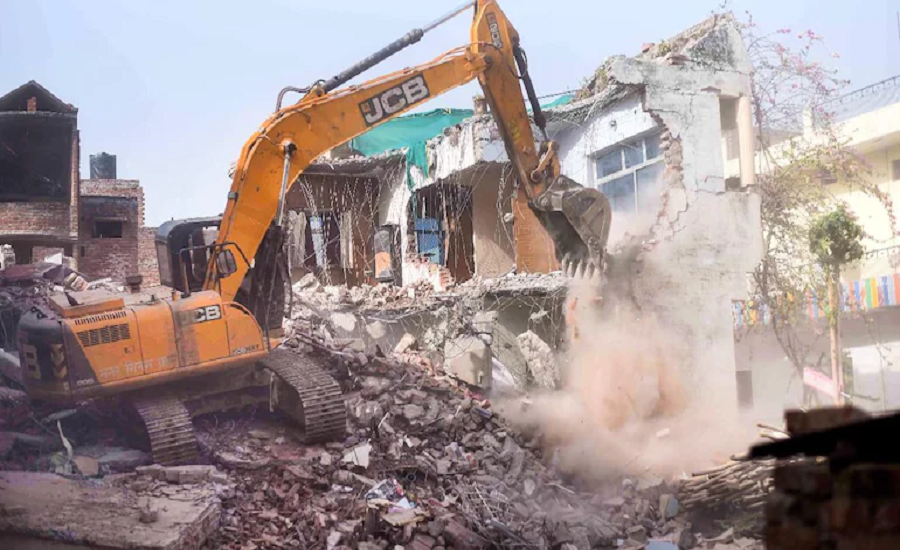The court directed the district administration to pay a compensation of Rs 1 lakh each to the petitioners – Radha Langri and Vimla Gurjar.
Team Clarion
BHOPAL – In a scathing observation on bulldozer action against those who are an accused in criminal cases, the Madhya Pradesh High Court has said it has become “fashionable” for civic authorities to demolish homes without following proper procedure.
The Indore bench of the high court made the observations on February 1 in a case relating to the demolition of the home of Rahul Langri, who faces a case of voluntarily causing hurt to extort property. He is accused of threatening and assaulting a man, who later died by suicide. Langri was arrested and sent to jail. Police then got in touch with the civic body and his two-storey house in Ujjain was razed.
Another petitioner, Vimla Gurjar, also approached the court fearing demolition of her house by the Ujjain Municipal Corporation.
The high court directed the district administration to pay a compensation of Rs 1 lakh each to the petitioners – Radha Langri and Vimla Gurjar. While Langri said that her house was torn down without any warning, Gurjar received a notice but moved the high court for a stay order.
Observing that it has become a ‘fashion’ for the district administration to demolish houses and structures without going through the procedure, the high court said, “It has become fashionable now for local administration and local bodies to demolish any house by drawing up proceedings without complying with the principal of natural justice and publish it in the newspaper.”
“It appears that in this case also the criminal case was registered against one of the family members of the petitioners and demolition activities were carried out. It is not the case of the respondent that in the entire area under the Municipal Corporation Ujjain, these are the only two houses that are constructed without permission to be demolished,” the court added.
While the municipal corporation argued that the houses were built without permission and were not registered under the petitioners’ names in official records, the court was not convinced.
Taking the case of petitioner Langri, the court said that the building officer had no idea regarding the name of the petitioner or the owner of the building.
“Had the building officer gone to the spot he would have been informed about the name of the petitioner about the ownership…There is no such person in the name of Parvez Khan, there is no such document to show that he purchased the property. Only, based on this so-called oral information, the panchnama was drawn and drastic action for demolition has been taken,” the high court said.
The court further said that such actions where an owner’s name was fictitious but demolition is carried out either way is very concerning. The court ordered disciplinary action against the officers involved.
While acknowledging the importance of building regulations, the high court also emphasised that demolition should be a last resort after giving homeowners a chance to rectify any violations.

